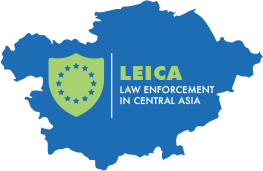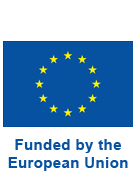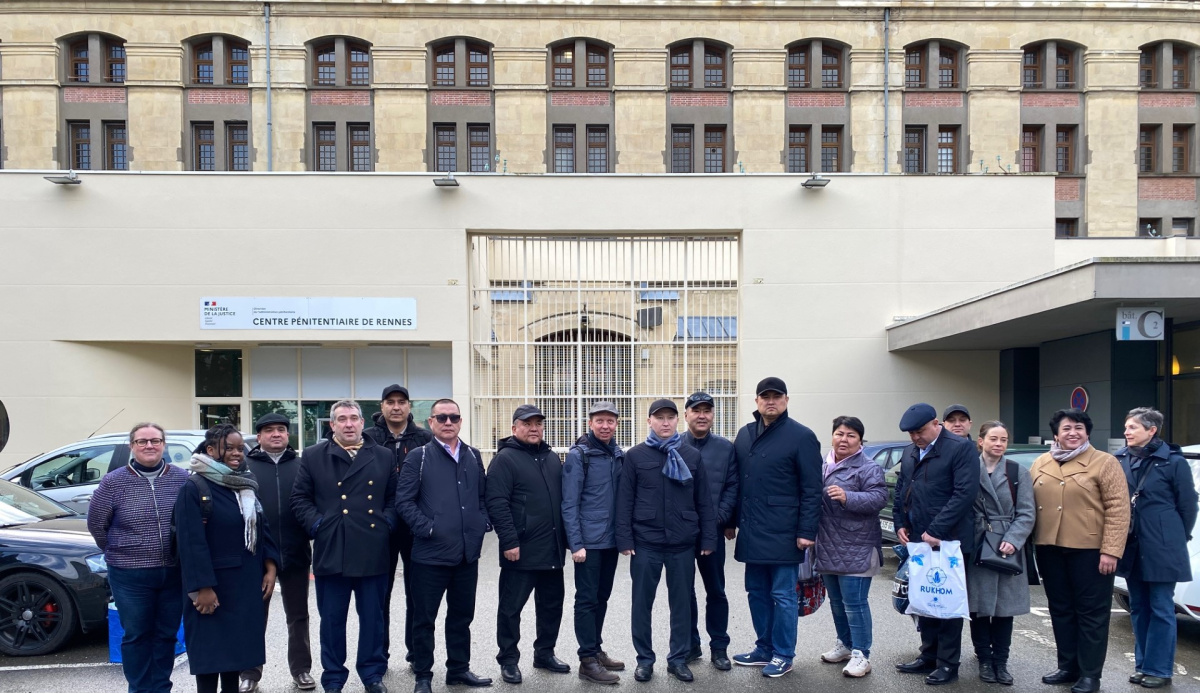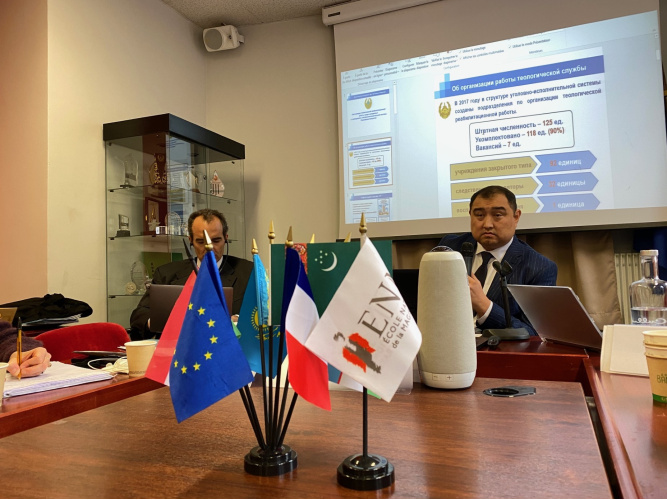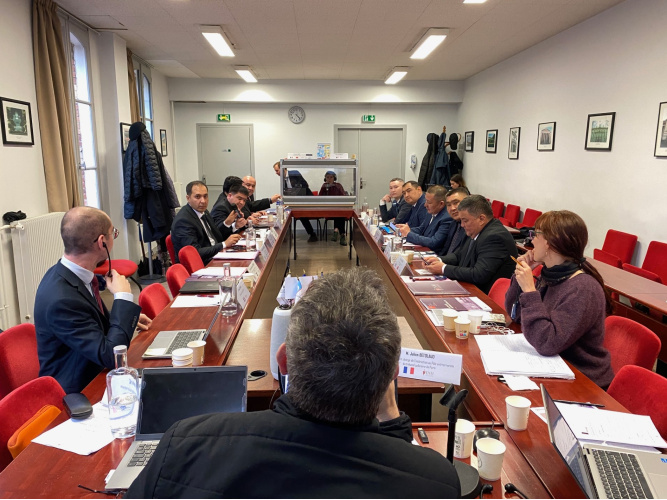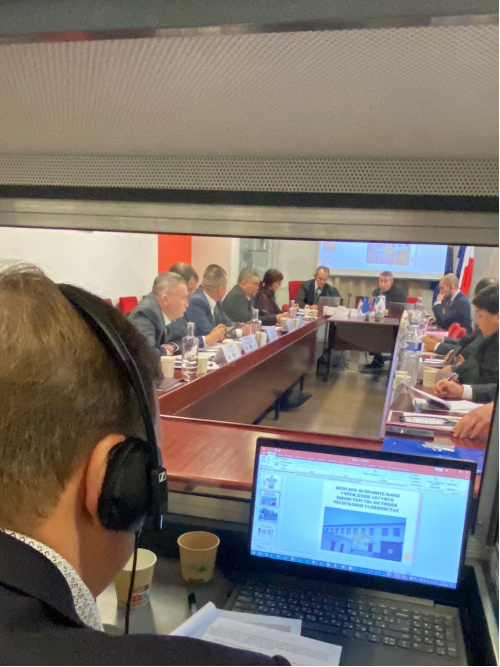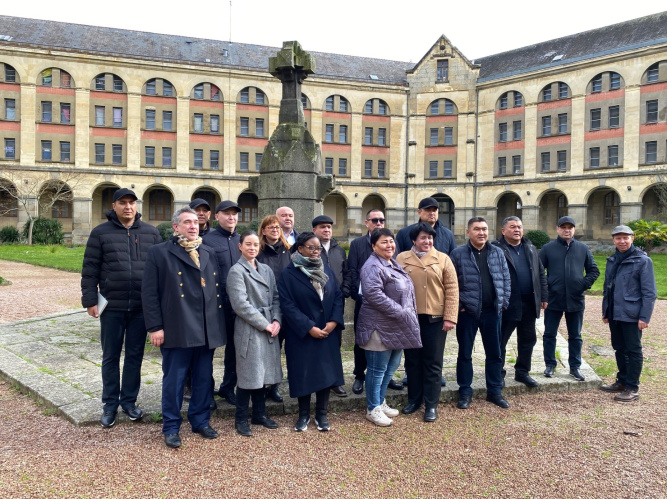01. 03. 2024
Management of Radicalized Women in Prisons
11 prison management officers from the five countries of Central Asia participated in a five- day seminar organized by the European Union-funded project LEICA, in cooperation with the French ENM (Ecole Nationale de la Magistrature). The activity took place in Paris and Rennes (France).
The presentations were in charge of officials of the French “Direction de la Administration Penitentiaire”. They included the procedures that enable for continuous follow up of people sentenced on terrorism cases in order to evaluate the evolution of their behaviour and, about all, to support their disengagement from violence. Several judiciary departments and other agencies are interconnected in this endeavour: inter alia, the investigation judge that oversees the implementation of sentences, the anti-terrorism prosecution office, the insertion&probation service, the department of countering radicalization, and the penitentiary intelligence.
Participants from Central Asia presented the situation in their respective countries, and they were engaged in discussions and questions related to the functions and organization of work in prisons. They were quite interested on the so-called QER (Quartier d ’evaluation de la radicalization), which is first and foremost a prison tool for identifying the best detention regime for radicalized people, leading to three types of care: ordinary detention, the QPR (Quartier de prise en charge de la radicalization) or the isolation ward.
French officials also presented the counter-radicalization strategy and detailed the specificities of its implementation with radicalized women, their psychological traumas, and treatment. The most awaited part of this seminar was a visit to the prison for women in Rennes, which has a separate section for radicalized women. There, the participants could examine the QER/QPR facilities, and they engaged in discussions with the multidisciplinary team of professionals (psychologists, social workers, etc) that evaluate the radicalized women in this prison.
The Project LEICA (Law Enforcement in Central Asia) is managed by the European Commission, through a consortium made up of French CIVIPOL, and Slovak ISEMI. The project is supported by INTERPOL.
